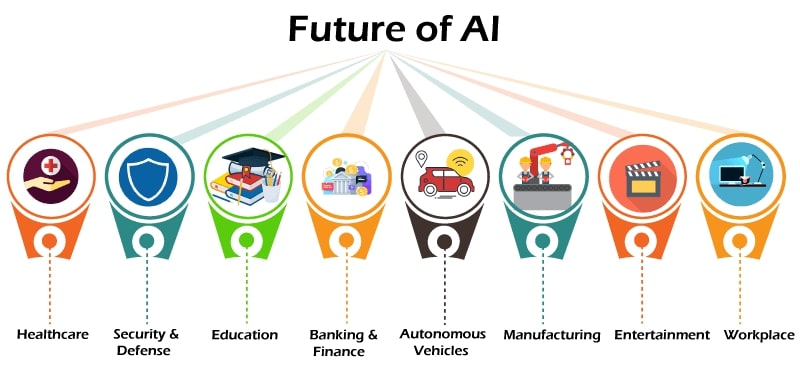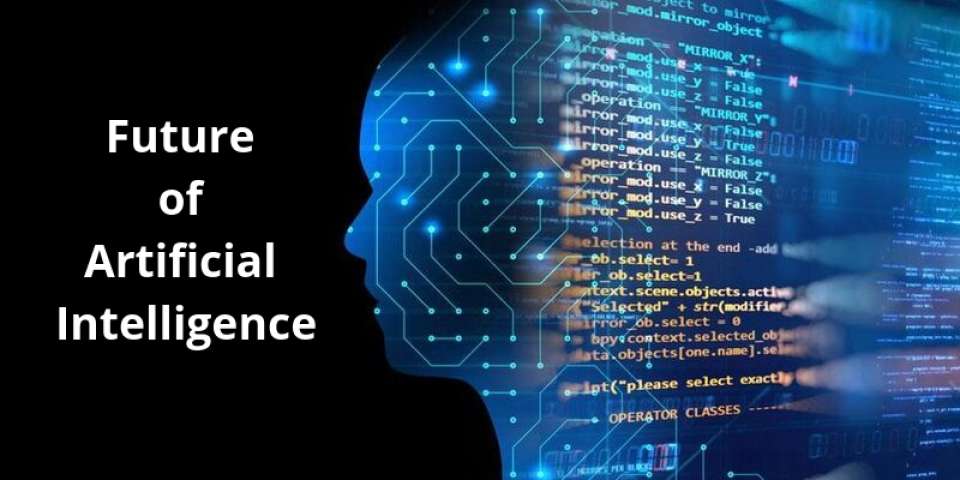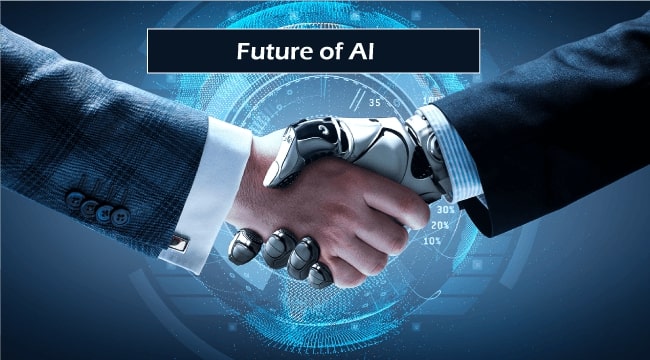The Future of Artificial Intelligence: Amazing Predictions and Possibilities
“I am optimistic about the potential of AI to solve some of the world’s biggest problems, from climate change to disease. However, we need to be careful about how we develop and deploy this technology to ensure it is used in ways that are safe, ethical, and beneficial to all of society.” - Fei-Fei Li, Co-Director of the Stanford Institute for Human-Centered Artificial Intelligence.
Are you curious about what the future holds for Artificial intelligence? Are you wondering what new possibilities will be unlocked by this transformative technology?
The future of AI is a topic of much speculation and debate. Some experts predict that AI will lead to unprecedented advances in healthcare, transportation, and finance. Others warn of potential dangers, such as job displacement and ethical concerns.
However, despite the uncertainties, it’s clear that the possibilities presented by AI are immense. Imagine being able to diagnose diseases more accurately, optimize supply chains for maximum efficiency, or even create genuinely autonomous vehicles. AI has the potential to revolutionize virtually every industry and aspect of life.
So, if you want to stay ahead of the curve and understand the potential impact of AI on your field, it’s essential to stay informed. Keep up with the latest news and developments in AI, and explore how this technology can be applied to your work. By staying up-to-date on AI advancements, you can position yourself for success in the future.
Important Points About Future Artificial Intelligence:
-
AI will continue to advance rapidly, leading to new applications and possibilities.
-
Experts predict that AI will have a profound impact on a wide range of industries, from healthcare to finance to transportation.
-
AI has the potential to revolutionize the way we live and work, with possibilities such as more accurate diagnoses, more efficient supply chains, and autonomous vehicles.
-
However, there are also concerns about the impact of AI on jobs, privacy, and security.
-
As AI continues to develop, it will be essential to address these concerns and ensure that this technology is used ethically and responsibly.
-
Despite the challenges, the possibilities presented by AI are immense, and those who stay up-to-date on AI’s advancements will be best positioned for success in the future.

Future Of Artificial Intelligence (AI):
-
Healthcare
-
Security & Defense
-
Educations
-
Banking & Finance
-
Autonomous Vehicles
-
Manufacturing
-
Entertainment
-
Workplace
“AI is going to transform every industry, but we have to figure out a way to do it responsibly, so that the benefits are shared broadly, not just concentrated in the hands of a few.” - Andrew Ng, Co-Founder of Google Brain and Founder of deeplearning.ai.
Predictions of Future Artificial Intelligence
-
Continued rapid advancements in AI technology will lead to new applications and possibilities.
-
AI will be increasingly integrated into daily life, with more personalized experiences and improved decision-making.
-
The use of AI will become more widespread in industries such as healthcare, finance, transportation, and manufacturing.
-
Autonomous systems such as self-driving cars, drones, and robots will become more common.
-
AI will transform the workplace, with automation and machine learning leading to job displacement but also creating new opportunities.
-
Natural language processing and speech recognition will continue to improve, making it easier to interact with AI systems.
-
AI-powered virtual assistants will become more sophisticated and able to handle complex tasks.
-
The use of AI for cybersecurity and fraud detection will become more prevalent.
-
As AI systems become more powerful, the ethical implications of their use will become increasingly important.
-
Collaboration between humans and AI systems will become more seamless, with AI supporting and augmenting human decision-making.

Possibilities for the future of Artificial Intelligence (AI):
-
AI will continue to revolutionize healthcare, with the potential for more accurate diagnoses, personalized treatment plans, and drug discovery.
-
Autonomous vehicles powered by AI will transform transportation, making it safer and more efficient.
-
AI-powered virtual assistants will become more sophisticated, able to handle more complex tasks and provide better-personalized experiences.
-
AI will enhance education and training, with personalized learning plans and intelligent tutoring systems.
-
AI will improve supply chain management, with more accurate demand forecasting and efficient inventory management.
-
AI will revolutionize manufacturing, with autonomous robots able to handle tasks more efficiently and with greater precision.
-
AI will improve agricultural efficiency, with precision farming and smart irrigation systems.
-
AI will transform the energy sector, with more efficient energy generation and distribution systems.
-
AI will enhance scientific research, with the ability to process and analyze large datasets and simulate complex systems.
-
AI will play a critical role in addressing global challenges such as climate change, poverty, and disease.
“AI has the potential to be a powerful tool for social good, but we need to be aware of the unintended consequences that can arise from its use. It’s important to consider the ethical implications of every AI system we build.” - Timnit Gebru, Co-Founder of the Black in AI affinity group and former Co-Lead of the Ethical AI team at Google.
These possibilities give us a glimpse into the transformative potential of AI in virtually every aspect of our lives. As AI continues to develop, we can expect to see new and exciting applications emerge.
You may also like:

Top 10 Hidden Smartphone Features You’re Not Using (But Should Be) – Boost Your Mobile Experience Today
Top 10 Hidden Smartphone Features You’re Not Using (But Should Be) – Boost Your Mobile Experience Today

Top 10 Tips of Pro level smartphone photography : Turn Your Smartphone Into a Pro Camera
Top 10 Tips of Pro level smartphone photography : Turn Your Smartphone Into a Pro Camera

The 10 Common Behaviors That Damage Your Phone
The 10 Common Behaviors That Damage Your Phone
